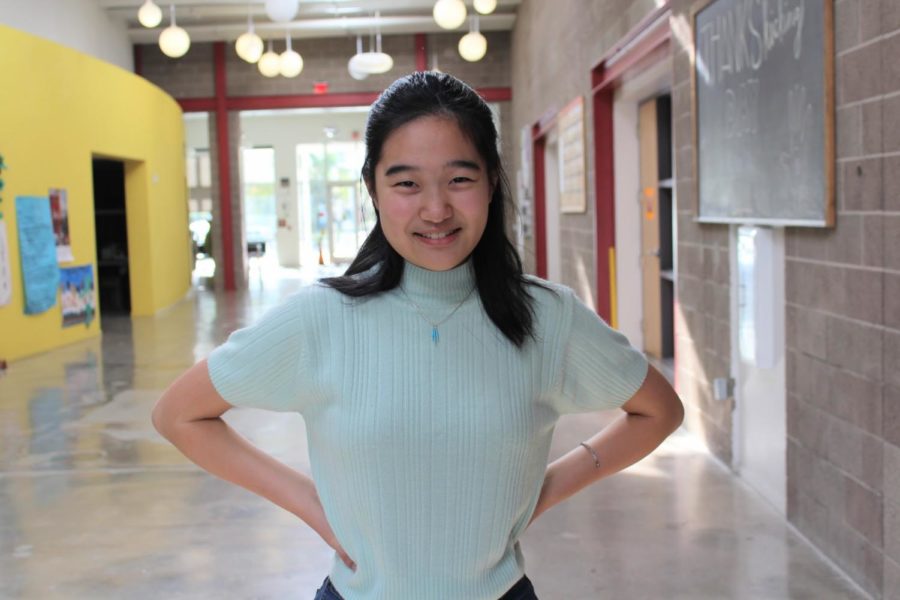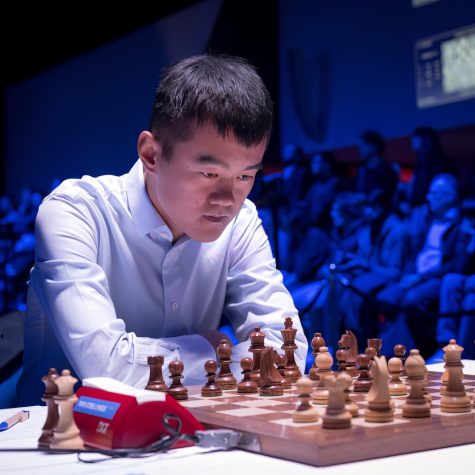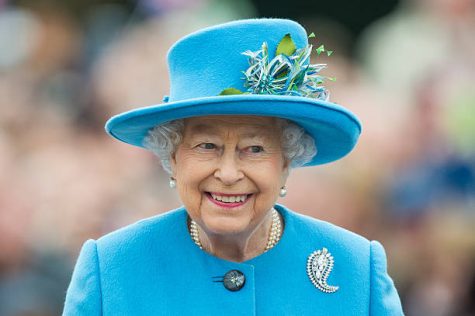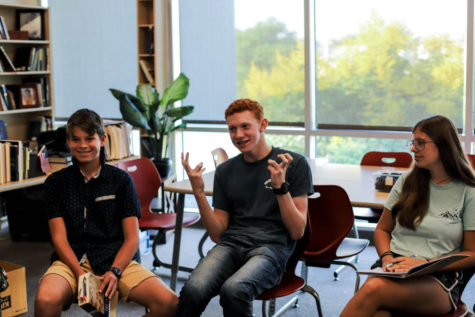Junior Crystal Sung is Finalist for Student Member of State Board of Education
Junior Crystal Sung sits next to me on the bench in the hallway near Room 113, and she’s unlike any other interviewee I’ve talked with.
Every interview is different because every person is different, but Crystal is particularly different — this is her third year on staff, and she already knows exactly what to do in an interview. She doesn’t wait for me to prompt her for her information; once the recording starts, she holds my phone close to her mouth, and she launches right in.
Sung has been a go-getter since the start of her high school career, taking several honors classes as a freshman and taking both AP U.S. History and AP U.S. Government and Politics simultaneously as a sophomore. This year, she is maintaining a rigorous AP schedule, serving as Editor in Chief for “The Crimson” and holding down two political internships. Sung has won awards for her history papers, her academic achievements and her debate skills.
Now, Sung has begun to leave her impact off-campus. She is one of the three finalists for the student member position on the California State Board of Education. The State Board of Education determines educational policy for California schools, but not without some student input.
“Every legislative session, which is basically the school year, they have a student member position that is to be replaced every single year,” Sung said.
As someone interested in government policy and politics since the start of her debate career in eighth grade, Sung first heard from the opportunity through the counseling department, and, in a flurry of three days’ time, submitted everything required: “five essay questions … three recommendation letters and a supplement.”
Once she passed the application process, Sung attended a convention with 11 other semifinalists in Sacramento. Every semifinalist made a speech to the convention’s delegates, and, in turn, six of those 12 candidates were elected by the delegates.
“In my speech, I talked … about how I believe we should have a citizenship course,” Sung said. “And what I mean by ‘citizenship’ isn’t, ‘Are you an American?’ … but rather, cultivating motivation in people … We always talk about this emphasis on career-based education, but we never actually really help kids decide what direction their interests lie in.”
Sung believes even subliminally prompting students to consider their personal interests could make a big difference.
“I think by introducing things like TED Talks and videos … just five or 10 minutes of the school day, this would be a really eye-opening experience for students and increase their knowledge about the world and the different fields and careers they can go into,” she said. “So once they know what path they want to go on, we can help them with study habits … because I think one of the greatest disparities between top-performing students and struggling students are how they use the resources that they have. If you’re using [a] Chromebook at school, are you using it for the [Chrome] dinosaur game, or are you using it for Quizlet?”
After making it past the first round of eliminations — an experience Sung describes as “really stressful” and highly reminiscent of “America’s Top Model” — Sung was randomly assigned to a group of delegates. Together, they were asked to pitch an educational policy proposal to the State Board.
“My group and I decided that our topic would be student-to-counselor ratios,” she said. “There’s actually no limit on the student-to-counselor ratio, and there’s not even a law that says there needs to be a counselor at school, which is a huge problem because that means sometimes [one] counselor has to handle up to 1,000 students.”
“A lot of colleges or summer camp applications … require counselor letters, and so having a counselor be insanely busy and overflowing with student requests … [is] not practical or efficient in any way.”
What Sung and her group saw as a glaring problem, however, had not even crossed the mind of the State Board.
“It was something that they had never thought of before,” she said. “But on our part, it was such a huge oversight.”
After a very long practice interview (ending at 1:30 a.m. the next morning) with current State Board student member Jayden Gray, Sung was interviewed by the screening committee, six members of the State Board itself. Sung doubted her performance during the interview, which she credits to a lack of sleep and bottled water at her hotel. However, this doubt helped her to “concentrate on the policy process … as opposed to just the candidacy.” At lunch after the interview, Sung learned she had been selected as one of the top three candidates.
On Jan. 24, Sung will be interviewed by a member of Governor Jerry Brown’s staff over the phone. “The governor will make the final selection and present the final person to the State Board,” she said.
Besides being involved in politics and policy, Sung also has an affinity for the written word. “My passions in life are politics, policy, prose, poetry and puns,” she said.
Sung has self-published a poetry collection, and she’s currently working on a novel she hopes to finish by summer, “but we’ll see.”
In the meantime, she manages constituent correspondence for both her state senator and assemblywoman [sic], she does ballet and she plays keyboard on the worship team at her church.
While Sung would be very happy to become next year’s student member on the State Board, she would feel just as comfortable with another candidate obtaining the position.
“Honestly, we are all so qualified and so passionate about what we want to do for the state … I would be so happy if any of them got it.” And in recounting one of her interactions with the other candidates to me, that assurance seemed solidified.
“We were talking in the hallway one time by the vending machines, and somehow the conversation shifted from hot Cheetos to our dreams for the future,” Sung said. “We just started crying because there was just so much that we wanted to do and not enough time to do it, you know?”
Regardless of the results of the candidacy, Sung knows each candidate is personally invested enough to make positive change. “I think one of the people I met at the conference put it really well,” Sung told me. “She said, ‘We’re doing this to save our past selves.’”
Having made it this far in the application process, Sung hopes to use her passion for policy and educational reform to make an impact in U.S. government, whether that impact occurs now, or in a future career as a policy expert.
“It’s been an amazing experience so far,” she said, “and I hope to continue that.”









Lydia • Jan 16, 2018 at 7:09 pm
YEAAAAH CRYSTAL!! SHE’S IN MY POD!!!!
You go girl! You are such an amazing young woman! <3
Crystal R. Sung • Jan 17, 2018 at 9:34 pm
SO ARE YOU <3
Elizabeth • Jan 16, 2018 at 6:39 pm
Go Crystal!!! 🙂
Crystal R. Sung • Jan 18, 2018 at 10:21 pm
thanks liz!